Key Takeaways
- JRPGs with player agency allow for evil choices, departing from the typical Law vs. Chaos narrative.
- Titles like
Shin Megami Tensei 4: Apocalypse
offer endings where players actively side with evil forces. - Games like
Dragon’s Dogma 2
feature unique evil routes, letting players make morally questionable choices.
JRPGs are defined by their narratives. If there’s one thing that groups together all the most important titles in the genre, it’s that they have a strong core story and a cast of characters that immerse the player in their world, whether that world is an idyllic fantasy realm or a contemporary reflection of our own. The best JRPGs that follow this adherence to story, regardless of when they were originally made, all have excellent stories that player input can shape in some way.
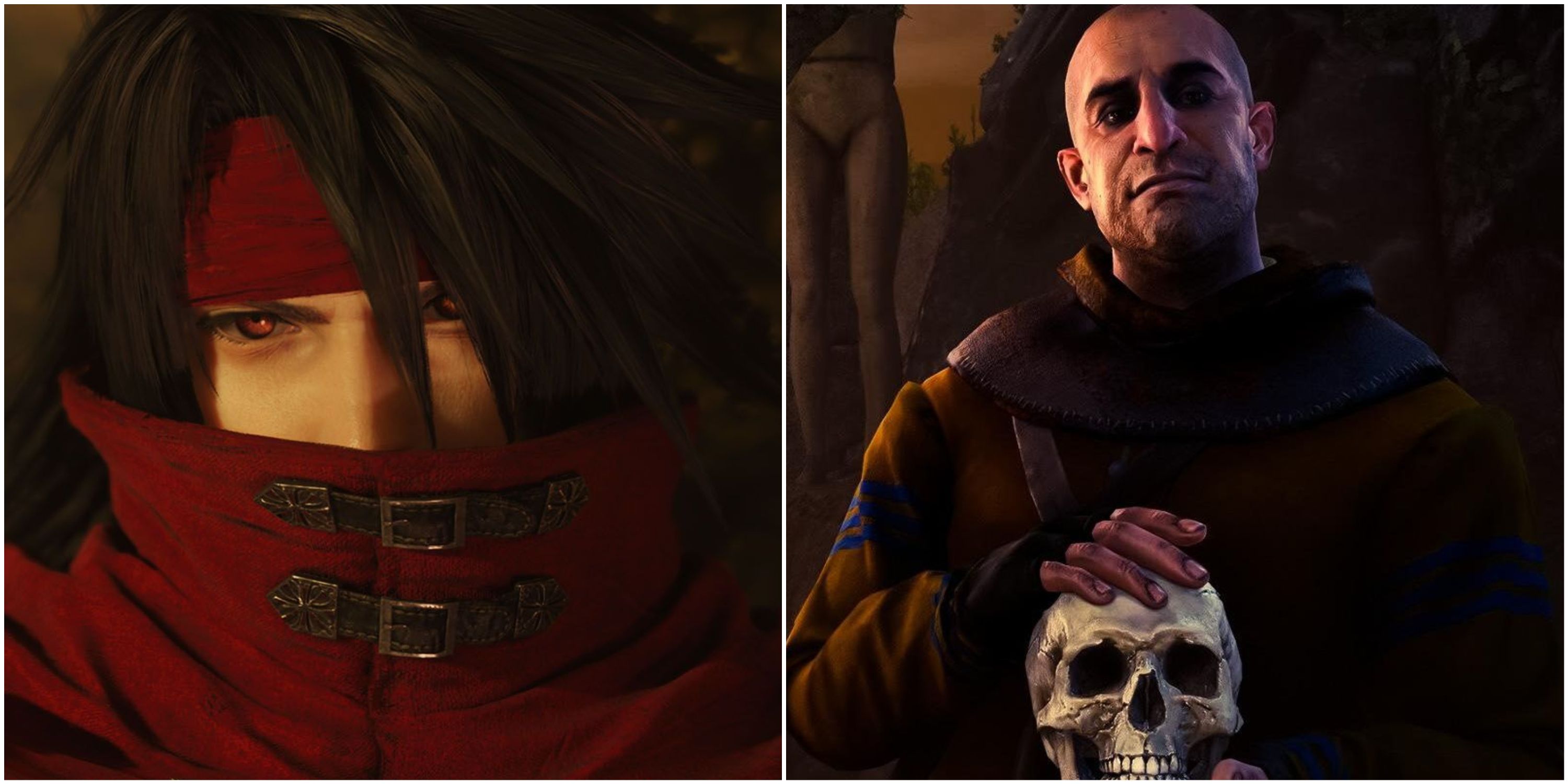
Related
8 Best RPGs Featuring Immortal Characters
The realm of RPGs is home to an array of immortal individuals, but these particular characters are easily among the best.
Many games have branching paths—the demand for RPGs is higher than ever, and developers are always including ways to showcase player agency through a shifting story that branches based on player choice. What is rarer, especially among JRPGs, are titles that let players be evil. These JRPGs do away with moral quandaries and let the player be gloriously, unabashedly, and shamelessly evil in a way that could even make the most fearsome of bosses blush.
8 Shin Megami Tensei 4: Apocalypse
Law And Chaos Become Closer To Good And Evil In This Title
Shin Megami Tensei IV: Apocalypse
The eternal struggle between gods begins now! It’s time to choose a side. Peace or anarchy?
The story of Shin Megami Tensei IV: Apocalypse focuses on a Hunter cadet protagonist who is defeated by one of the demons treating post-apocalyptic Tokyo as their personal playground. However, the mysterious god Dagda resurrects the protagonist in exchange for his fealty, and sets him on a perilous path that treads a fine line between peace and anarchy. Is Dagda simply an opportunistic lesser god, or is he part of something much bigger?
- Released
- September 20, 2016
- OpenCritic Rating
- Mighty
The incredibly difficultShin Megami Tensei 4: Apocalypse is easily one of the best games in a series that spans entire decades, and multiple high-quality spin-offs. Apocalypse leans a little bit more into the balance between good and evil, as opposed to law and chaos.
Early on, players get choices that have more to do with morality than ideology, like helping Isabeau with a sick person struggling to stand (she comments on this choice later on, to enforce the point). Moving beyond the binary of Law and Chaos is a large part of this game, and the ending after siding with Dagda is certainly sinister, even by Chaos standards.
7 The Caligula Effect: Overdose
The Remake Of A Phenomenal Game With A New Evil Route
The Caligula Effect: Overdose
- Released
- June 23, 2016
- Developer(s)
- FURYU
- OpenCritic Rating
- Weak
This utterly engaging JRPG will stick with players for a very long time. Mastering the mechanics of The Caligula Effecttakes a lot of work, but it’s an inherently rewarding experience. The Overdose remake for PC changes many things in this title, including adding a female player option and some drastic story changes.
There is now a new route in this game that lets players side with the forces of evil in the story, rather than good. Not to sway anyone towards either option, but the evil player theme is on an entirely different level.
6 Fire Emblem: Three Houses
The Path Of The Black Eagles Is Treacherous
One of the best things about Fire Emblem: Three Houses is all the directions that the story can take. These directions are dictated by several decisions, not just the key one at the story’s beginning, which dictates what house the player will be teaching for the majority of the game.
One of the three houses, in particular, has a very lax attitude towards morality and has no problem getting assassins and bandits involved in their schemes. A similarly evil option is to side with the religious institution that has been mostly oppressive and tyrannical for the majority of the game.
5 Triangle Strategy
Players Can Doom An Entire Race
Triangle Strategy is an amazing, convention-breaking wonder from Square Enix, one that lets players engage in a beautifully rendered world to their heart’s content, all the while getting embroiled in an epic political narrative with no equal.
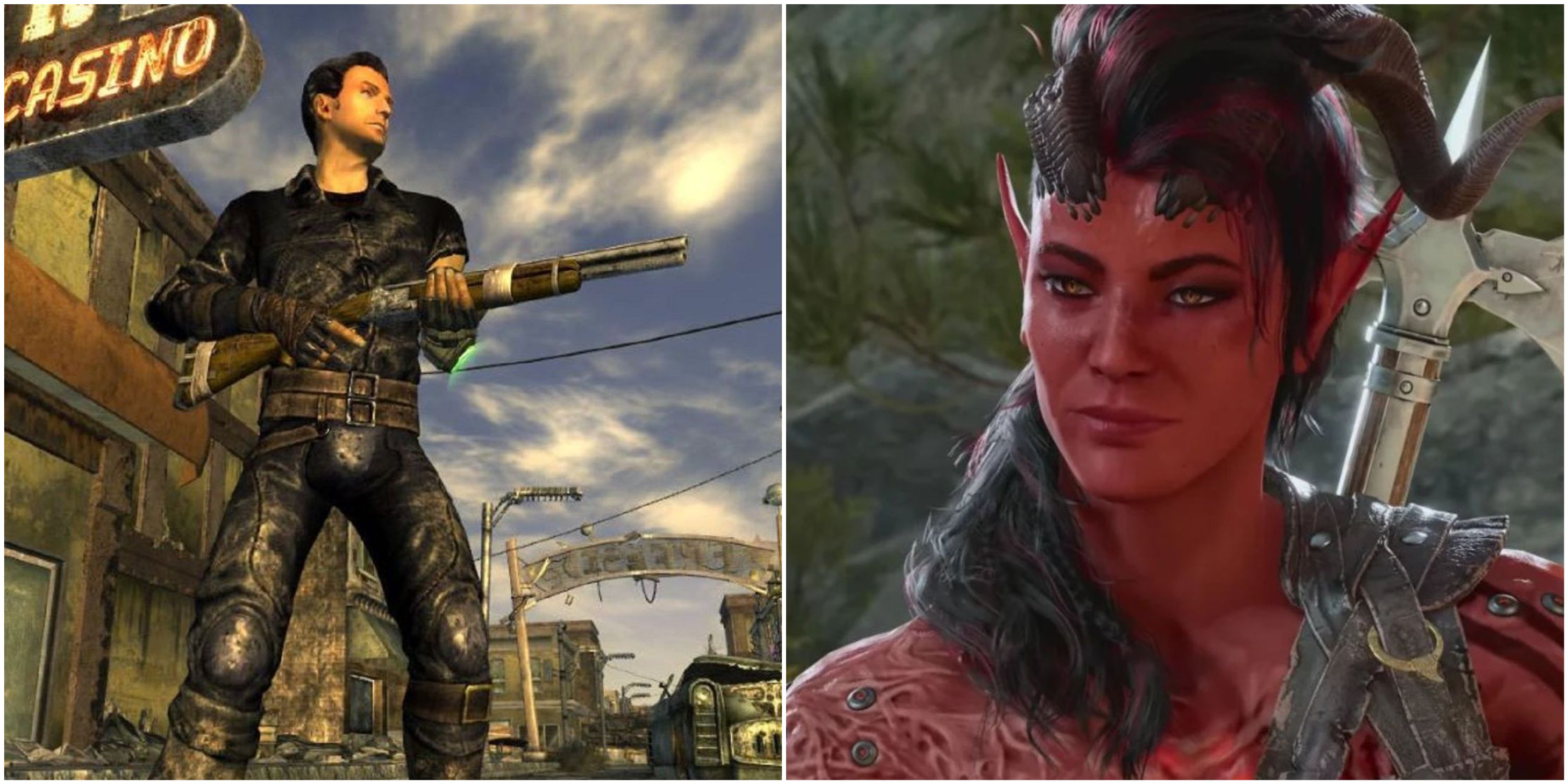
Related
8 Best RPGs Where Non-Combat Skills Are Crucial
Most big RPGs focus on combat, but these games make the non-combat skills just as useful.
Of the major choices available at the game’s end, most of them are in some way bittersweet. However, one ending in particular—confirmed as being based on falsehoods in the other endings—sees players not just continue, but actively benefit from the prolonged enslavement of the Roselle in the salt flats—a heinous way to end the game.
4 Suikoden 3
Players Can Unlock A Special Villain Campaign
The Suikoden series is not as well known as some of the other titles on this list, but it is by far one of the most compelling series of games available today, and the upcoming remake of the first two titles will hopefully inject some awareness back into this series.
Players who collect every single character before the game’s end will be rewarded with a special mini-campaign where they get to play as the evil antagonist of the title, seeing their schemes unfold from their own villainous perspective.
3 Disgaea 1
The Protagonist Is Compelling, But Definitely Not Benevolent
The Disgaea games, predominately set in the underworld and populated with devils, are not exactly known for their benevolent and virtuous characters. They’re mostly known for how ridiculously overpowered players can become, but there’s some great character work here too.
The protagonist of Disgaea 1 is not as evil as some of the other protagonists on this list, who enforce slavery or side with villains, but the first Disgaea revels in its identity as a game led by a demon, and lets players do many devilish things to suit this narrative.
2 Steambot Chronicles
This Game Features An Entire Evil Route
|
Platforms |
PlayStation 2 |
|---|---|
|
Released |
June 30, 2005 |
|
Developer |
Irem |
|
Genre |
Action-Adventure, JRPG |
Forgotten among all but its most devout cult following, Steambot Chronicles is a PS2 JRPG with an excellent twist on established formulas. The game’s steampunk setting is like nothing else available on the shelves today, with a similarly unique story to match.
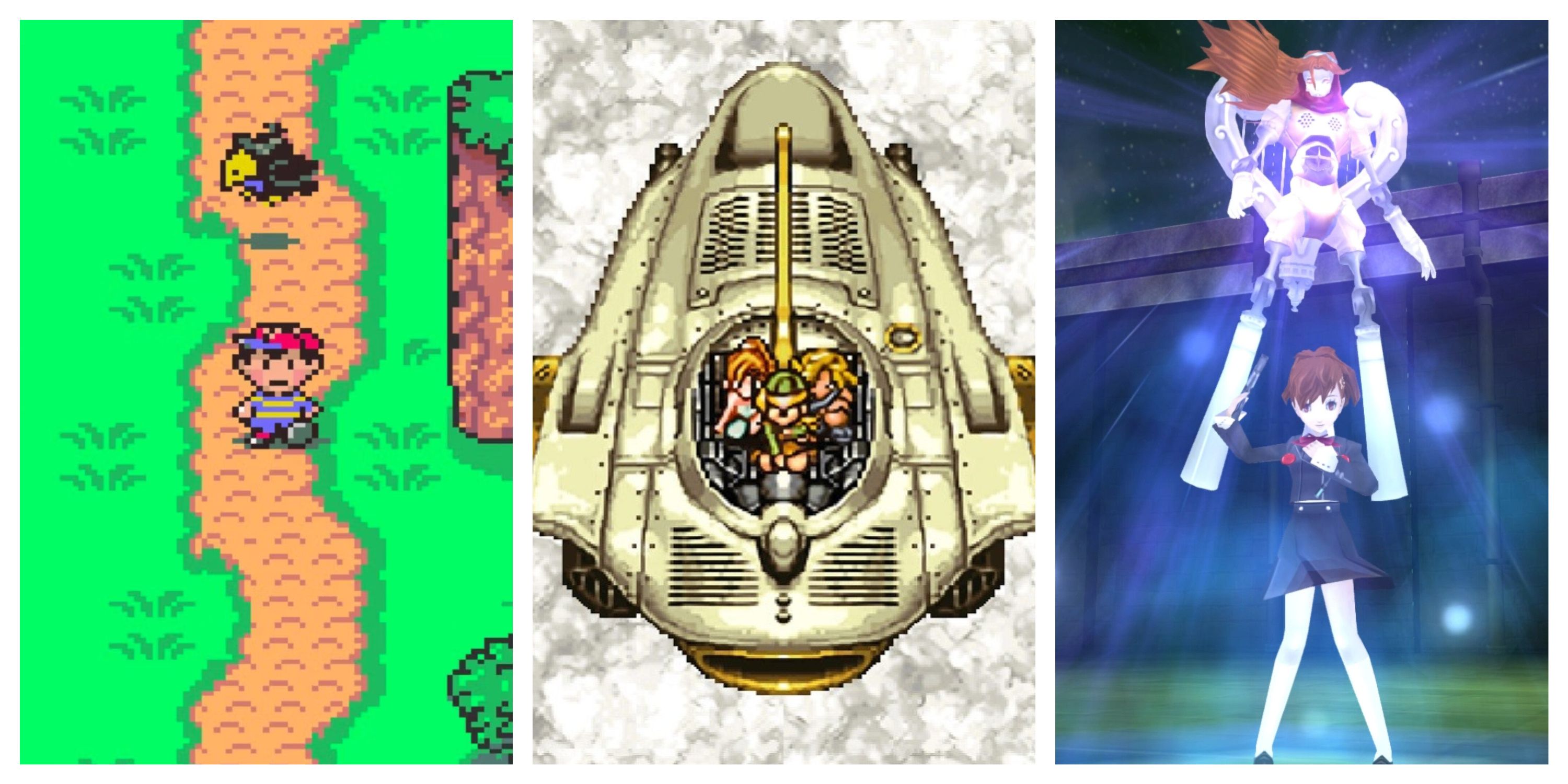
Related
10 Influential JRPGs Worth Playing Just For Their Importance To The Genre
These JRPGs are memorable not just for their own brilliance, but for the impact they had on the gaming world.
The game branches at one point, and one of the fully fleshed-out routes the player can take involves the protagonist deciding to side with the evil organization that has been the main obstacle in the game so far. The rest of the game plays out accordingly, with the player officially embarking on an evil playthrough.
1 Dragon’s Dogma 2
The Arisen Has A Destiny, But They Don’t Have To Heed It
- Released
- March 22, 2024
- OpenCritic Rating
- Mighty
Dragon’s Dogma 2 affords players a level of freedom and wanderlust that few other games can match, combining satisfying and impactful combat with exploration over a wide, lovingly detailed world filled with places to explore and loot to discover.
When the time comes for players to fulfill their destiny and slay the dragon, the Arisen can make a particular choice out of fear to stand down from the fight and remain Sovran. This leaves the world doomed because of the Arisen’s cowardice in a uniquely evil choice.
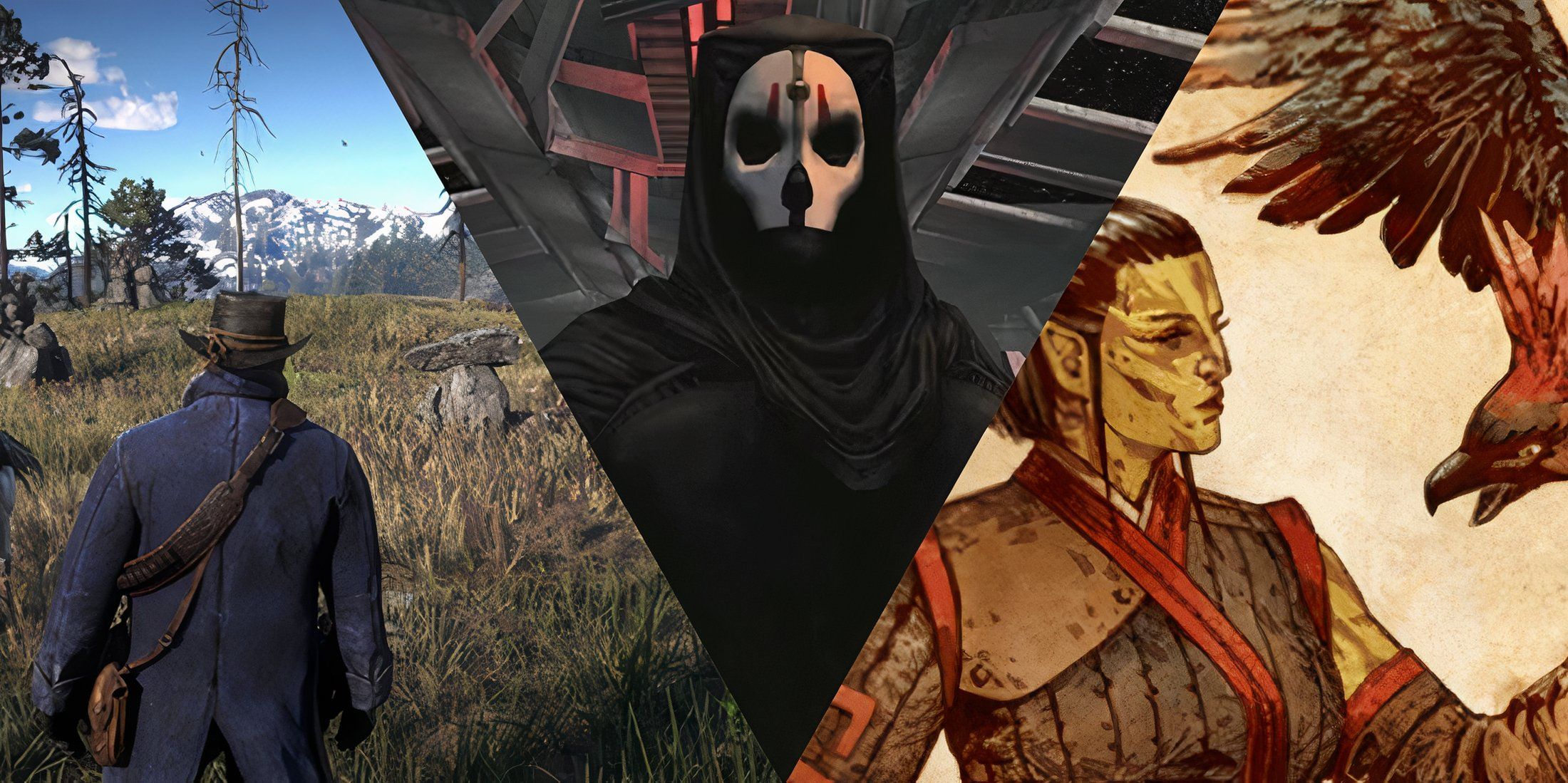
More
5 Best RPGs With Mechanics That Change Based On Player Alignment
These RPGs change how the game flows in line with the player’s morality (or lack thereof).
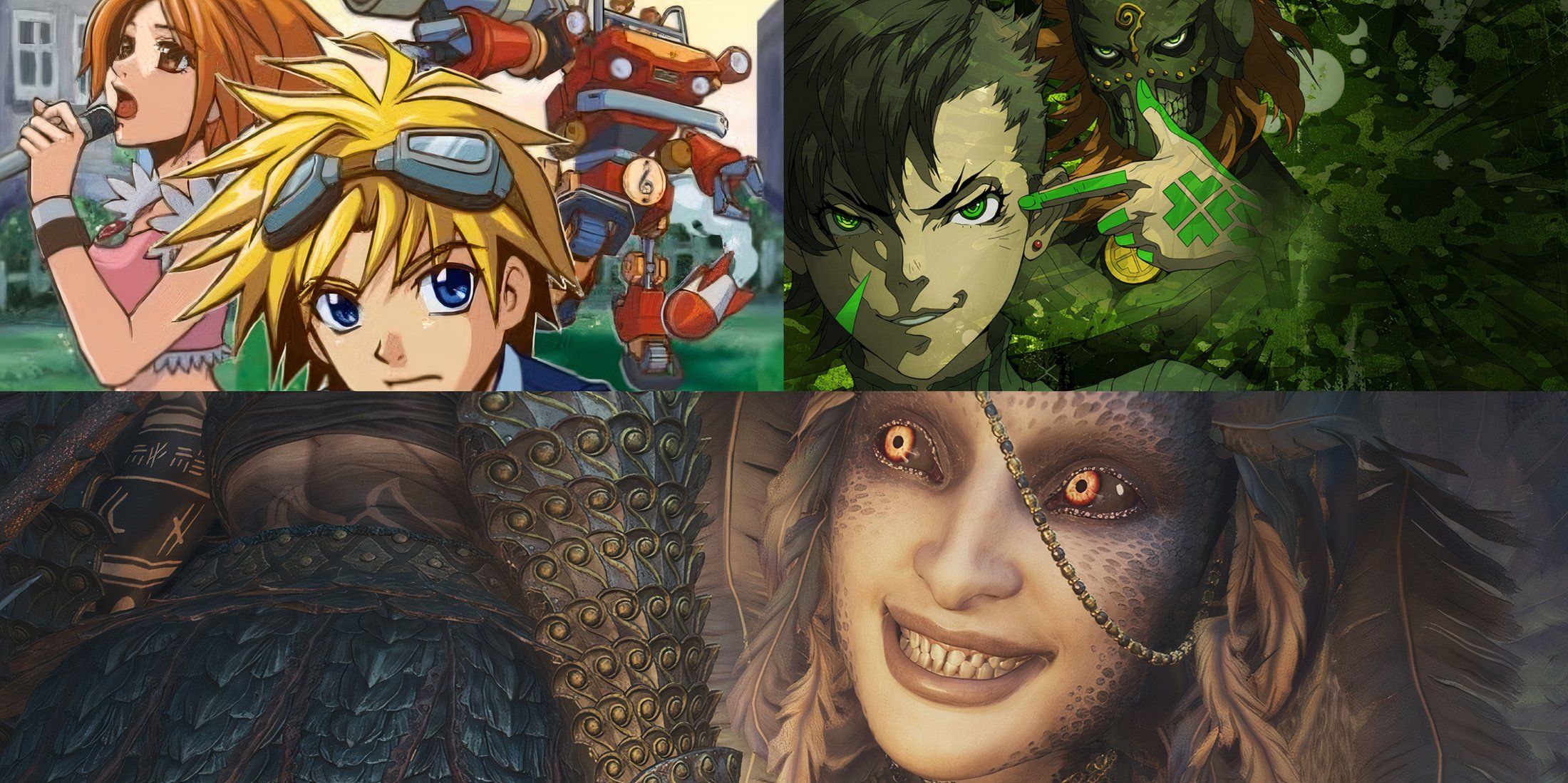

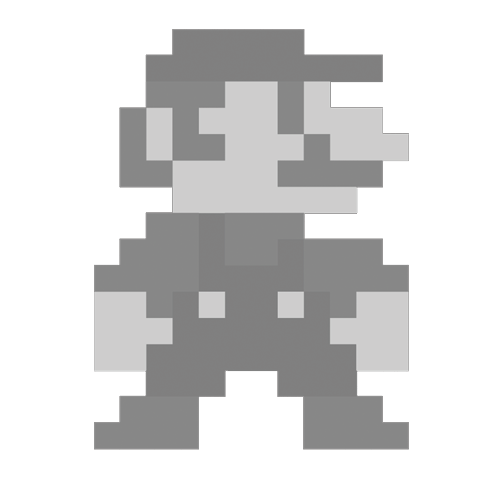


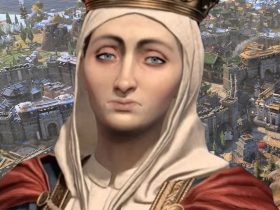


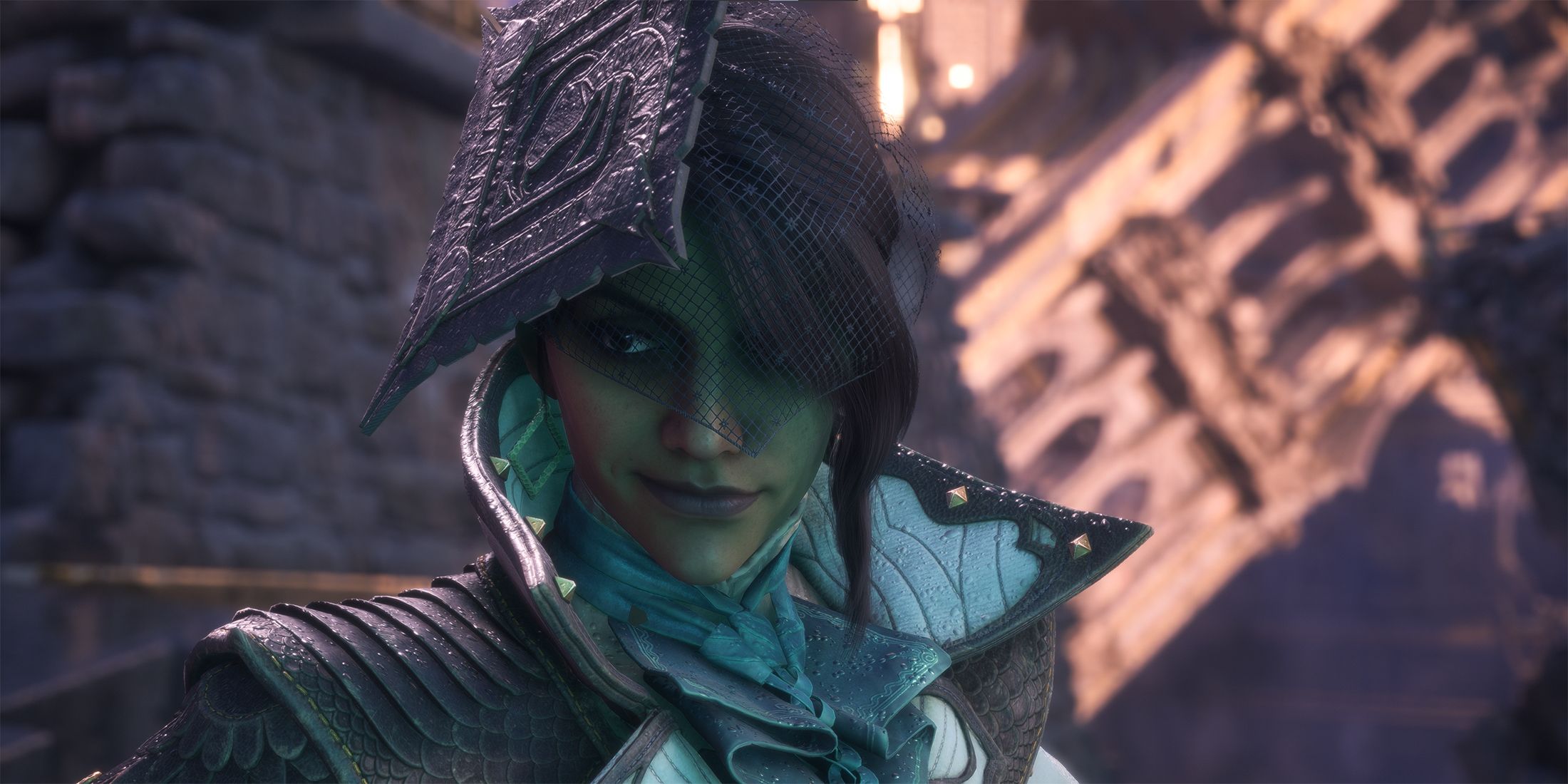
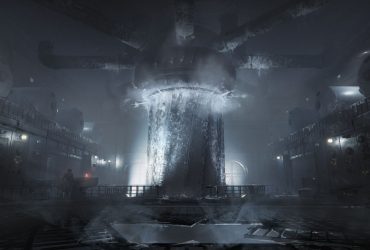


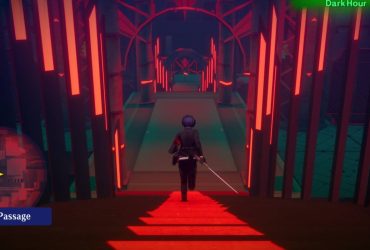

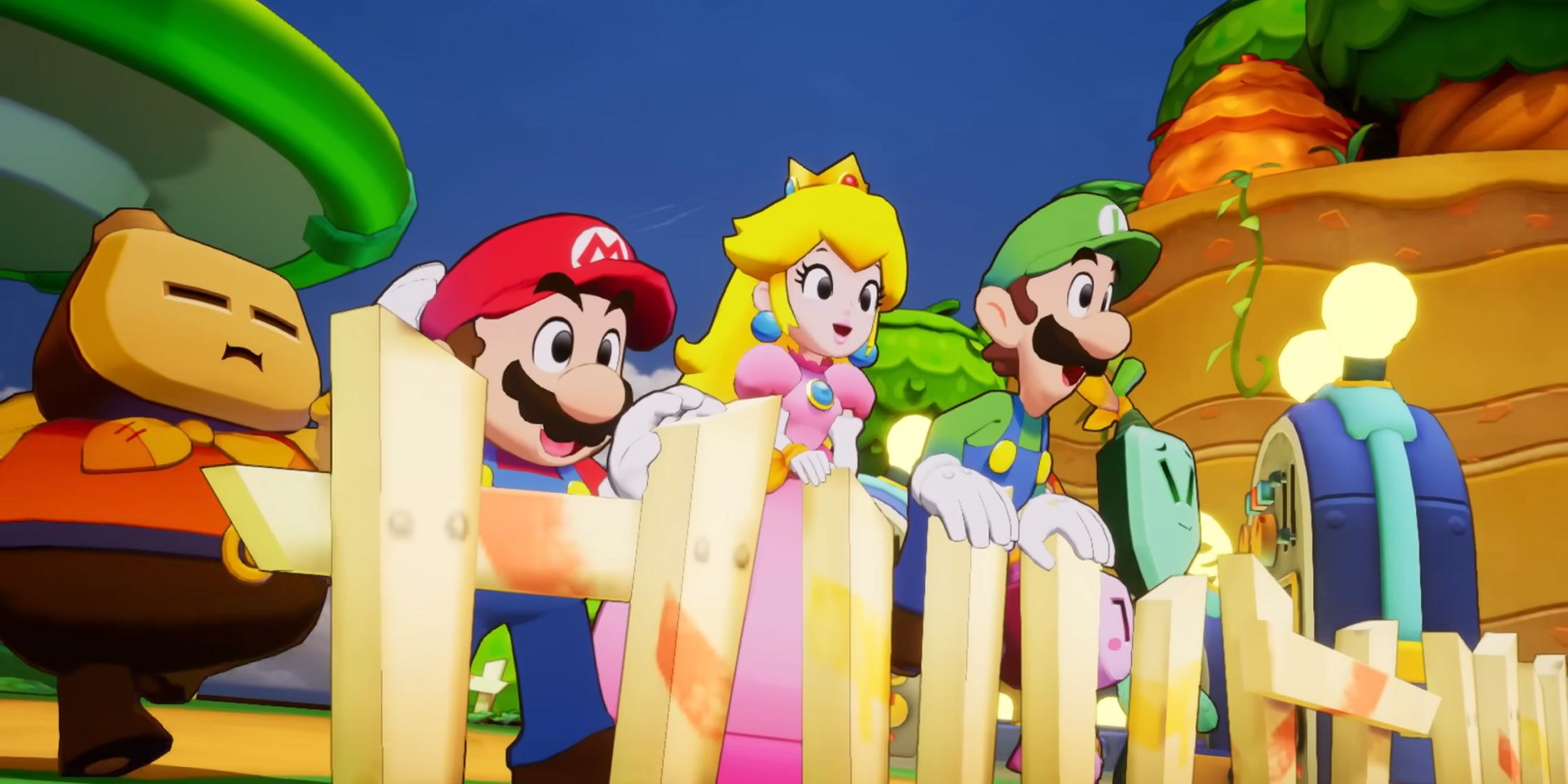
Leave a Reply